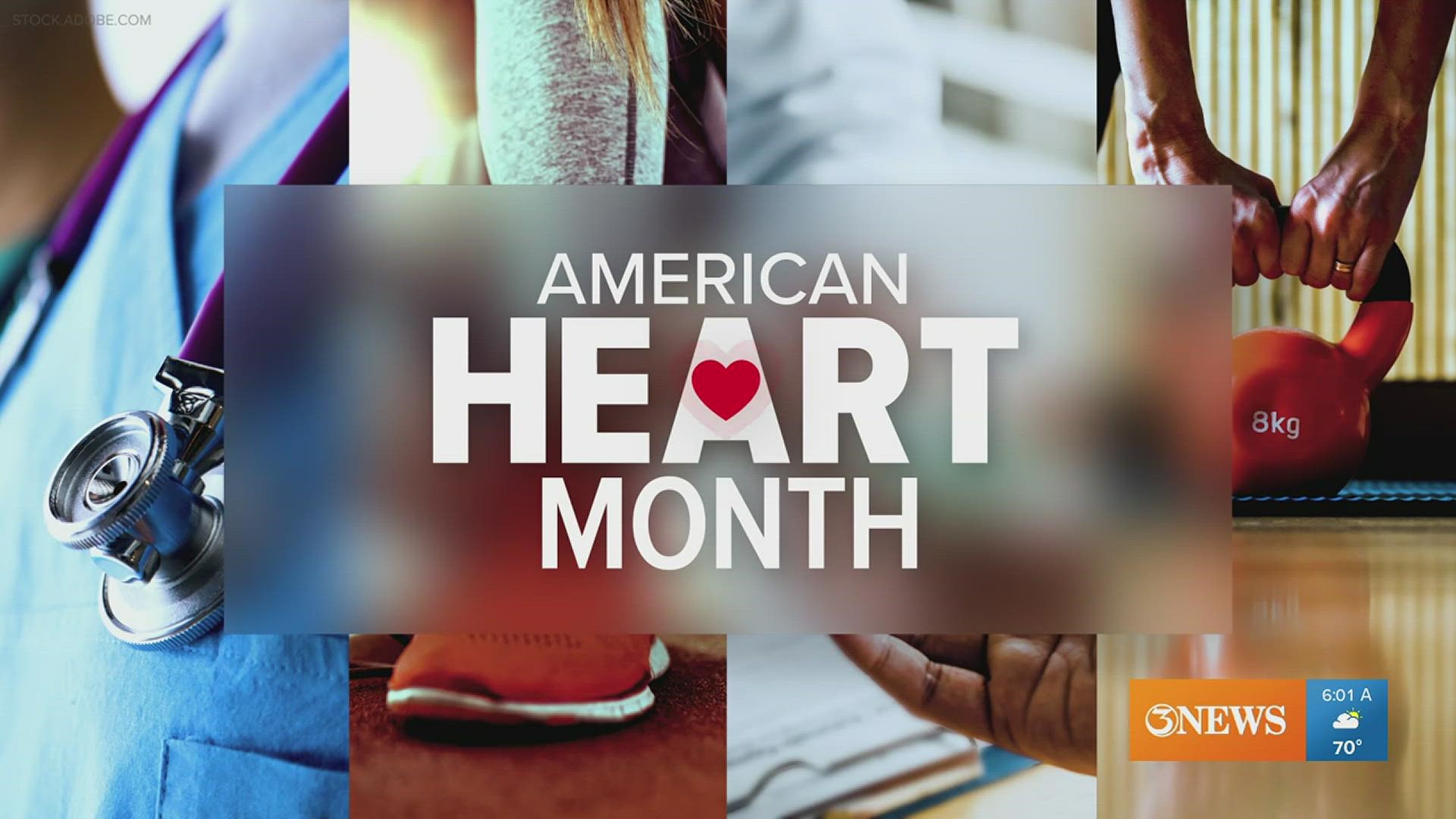CORPUS CHRISTI, Texas — Approximately every 40 seconds, someone experiences a heart attack across the United States, according to the American Heart Association. The group has designated February as Heart Month across the nation, and it's designed to spread awareness about the dangers of heart disease and how to recognize the signs of a heart attack.
Doctors with Corpus Christi Medical Center say that while some heart attack symptoms, such as chest pain, are common in both men and women, many other symptoms can vary. In women for example, a heart attack can be less recognizable as often times, women will not experience chest pain.
Heart Attack Symptoms In Men
- Back, neck or jaw pain
- Chest pressure or pain
- Shortness of breath
- Vomiting or nausea
Heart Attack Symptoms In Women
- Discomfort in the neck, jaw or arms
- Fatigue
- Lightheadedness
- Lower back pain
- Nausea, or flu-like symptoms
Research from the AHA shows that heart disease is the leading cause of death in American women. Experts believe the reason the numbers are so high is because symptoms can go unnoticed, and treatment is often delayed. Seconds do matter when it comes to serious medical conditions and doctors advise anyone with symptoms to call 9-1-1 when the warning signs are recognized.
Heart disease is preventable, and the risk of complications can be reduced by as much as 80 percent, according to the AHA. The AHA suggests making some simple lifestyle changes in order to improve overall heart health.
- Avoid or quit smoking - Smoking can increase the chances of contracting a stroke or heart attack.
- Drink in moderation - Excessive drinking can raise blood pressure and increase the chances of stroke and other health diseases.
- Lower high blood pressure - Take recommended medication and shake-off the desire for salt to reach an optimal blood pressure that’s less than 120/80 mmHg.
- Maintain a healthy weight - Try to watch your weight. Obesity can increase the risks of insulin resistance, high blood pressure and high cholesterol.
- Select a heart-healthy diet - Choose a diet with nutrient-rich foods and emphasize vegetables, fruits, and whole grains to positively impact various controllable heart-risk factors.
- Stay active everyday - A minimum of 150 minutes per week of moderate-intensity physical activity can lower your blood pressure, weight and cholesterol.
- Stress less - Find healthy ways to manage your stress. Studies show stress can enhance the risk factors for stroke and heart diseases.

